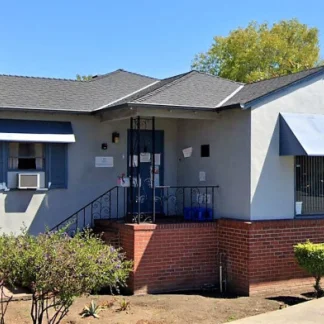Service League of San Mateo County - Hope House
Located in Redwood City, California, Service League of San Mateo County Hope Hou...
Our Common Ground was founded in 1988 and has provided substance abuse treatment for over three decades. This drug rehab center in Redwood City, California, provides evidence based residential and outpatient addiction treatment services.
The drug and alcohol addiction treatment offered at Our Common Ground is individualized to meet the specific needs of each individual.
This addiction treatment center offers clients a positive, caring environment that focuses on trust, healing, honesty, personal values, responsibility, and positive peer interaction. To learn more about the residential and outpatient programs, have a look below:
At Our Common Ground, there is a day and residential treatment program. Those who enroll in the day treatment program will need to attend individual and group counseling sessions alongside receiving addiction treatment services for substance abuse.
This program requires a minimum commitment of three hours a day, three days a week. In contrast, the residential treatment program requires individuals to enroll for 30 to 90 days to receive treatment.
The outpatient program (OP) at this drug and alcohol addiction treatment center requires individuals to attend at least one group counseling session weekly. Those enrolled must also attend at least two individual counseling sessions each month.
Trauma based therapy is also available, and those involved in this rehab center’s OP can seek help with recovery residences and transitional housing.
Contact us for more information: (650) 367-9030

Connect with Our Common Ground by calling their admissions team directly.
(650) 367-9030 Website Get DirectionsGroup therapy is any therapeutic work that happens in a group (not one-on-one). There are a number of different group therapy modalities, including support groups, experiential therapy, psycho-education, and more. Group therapy involves treatment as well as processing interaction between group members.
Trauma therapy addresses traumatic incidents from a client's past that are likely affecting their present-day experience. Trauma is often one of the primary triggers and potential causes of addiction, and can stem from child sexual abuse, domestic violence, having a parent with a mental illness, losing one or both parents at a young age, teenage or adult sexual assault, or any number of other factors. The purpose of trauma therapy is to allow a patient to process trauma and move through and past it, with the help of trained and compassionate mental health professionals.
Trauma therapy addresses traumatic incidents from a client's past that are likely affecting their present-day experience. Trauma is often one of the primary triggers and potential causes of addiction, and can stem from child sexual abuse, domestic violence, having a parent with a mental illness, losing one or both parents at a young age, teenage or adult sexual assault, or any number of other factors. The purpose of trauma therapy is to allow a patient to process trauma and move through and past it, with the help of trained and compassionate mental health professionals.
Located in Redwood City, California, Service League of San Mateo County Hope Hou...
La Selva Group, in Palo Alto, California, provides comprehensive mental health a...
Free at Last is a drug rehab located in Palo Alto, California, for substance, al...
First Chance, located in San Carlos, California, is an alcohol and drug rehab ce...